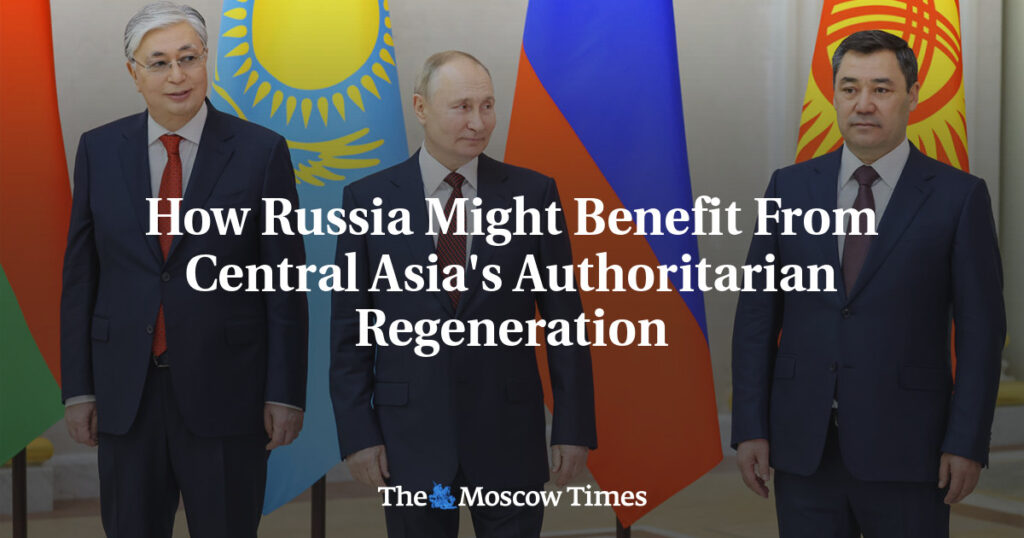
Credit: Twitter
Central Asia is becoming more authoritarian before our very eyes: after the power grab completed during the pandemic, the region’s elites are now introducing a series of measures designed to entrench their power for decades to come, says
Two recent events indicate that Russia could yet regain much of the relevance it appears to have lost in Central Asia in recent years by extending its authoritarian solidarity to the region’s leaders, he writes for the Moscow Times:
In his recent meeting with Chinese President Xi Jinping, Vladimir Putin pledged to prevent the outbreak of so-called “color revolutions” in Central Asia. Meanwhile, there is evidence of talks to expand trilateral energy cooperation between Russia, Kazakhstan, and Uzbekistan, with Russian reserves being used to compensate for the gas shortages caused by Astana and Tashkent’s disastrous energy policies.
As Central Asia faces twin international threats of Russian aggression and Chinese expansion, domestically citizens are increasingly vocal in their demands for reform, accountability, and representation, the National Endowment for Democracy (NED) adds. Regional leaders realize that deeper integration with the West can provide solutions to these challenges, promoting economic development and securing national sovereignty but they are fearful of reforms that may undermine the authoritarian basis of their rule.
How can human rights activists work with international partners—in civil society and in government—to find leverage points to encourage Central Asian leaders to improve human rights, introduce reforms, and—eventually—embark on a path towards democratization? How can local civil society, international NGOs, and Western governments play complementary roles in this process? What are the main opportunities today and how can we pursue them?
CENTRAL ASIA: LEVERAGING GEOPOLITICAL OPPORTUNITIES TO PROMOTE HUMAN RIGHTS AND REFORM
PANELISTS
- Damon Wilson—President and CEO, National Endowment for Democracy, opening remarks
- Yevgeniy Zhovtis—Director, Kazakhstan International Bureau for Human Rights
- Timur Karpov—Founder, 139 Documentary Center
- Sebastien Peyrouse—Research Professor, Elliott School of Public Affairs, George Washington University
- Spaska Gatzinska—Deputy Director for Eurasia, National Endowment for Democracy, moderator







